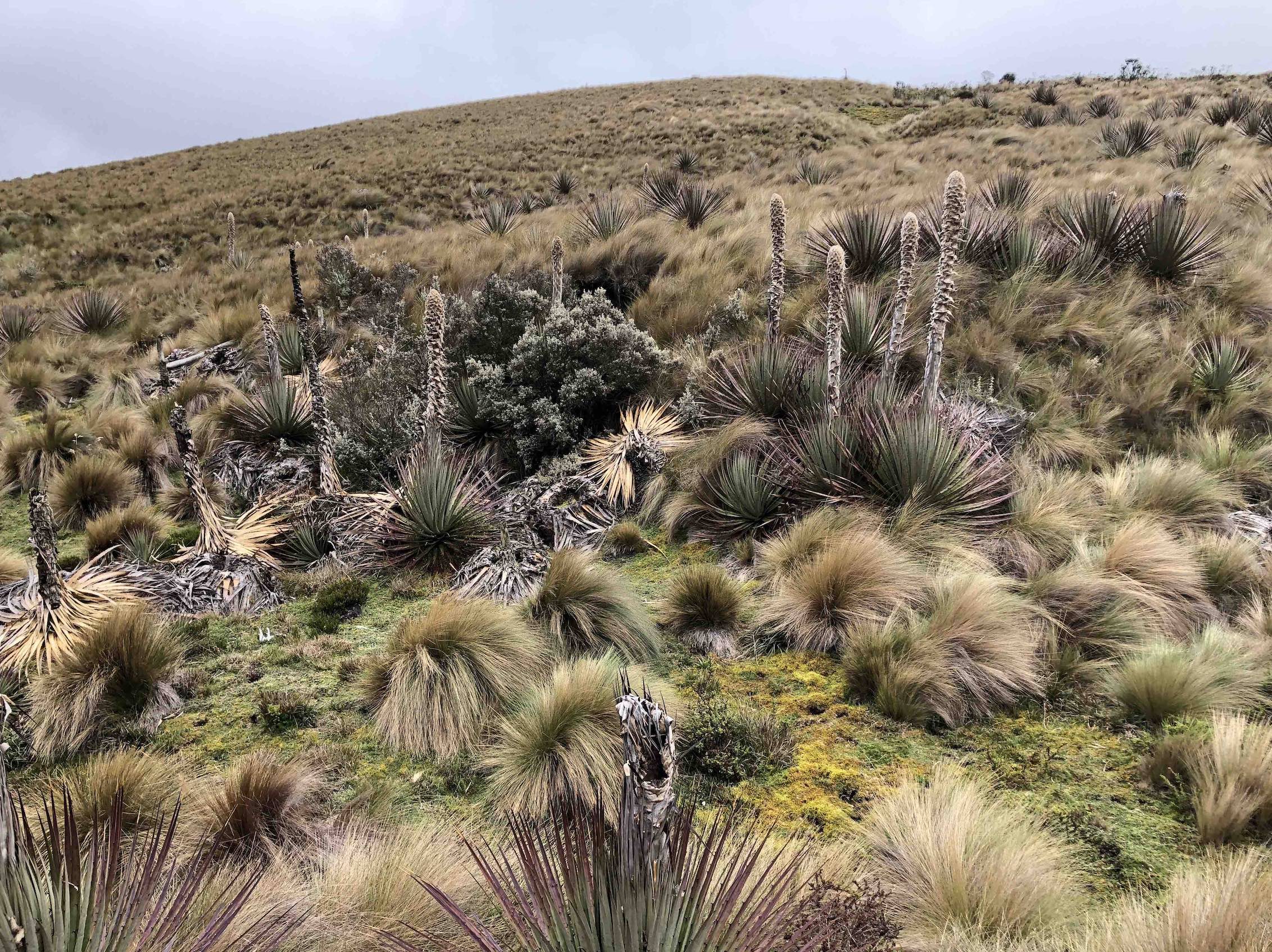A local court in southern Ecuador has ordered Dundee Precious Metals to suspend its mining operations in the páramo de Kimsakocha, upholding the rights of local communities and dealing another blow to Canadian mining interests in the region.
Dundee is attempting to build the “Loma Larga” gold-copper mine in the páramo de Kimsakocha – a high-altitude wetland that plays an essential role in protecting biodiversity, sequestering carbon, and maintaining the water supply for tens of thousands of people living in and around the páramo and the nearby city of Cuenca. A recent expert review of Dundee’s plans for the proposed mine found that the project is essentially a “ticking time bomb” for arsenic contamination, with major risks posed by the 5.5 million tons of mine waste Dundee plans to leave permanently exposed on the páramo when the mine’s 12-year life is up.
On Monday, August 28, 2023 the Provincial Court of Azuay announced its decision to uphold an earlier ruling by the Judicial Labour Unit of Cuenca, which had granted Protective Measures to the páramo and suspended Dundee’s mining activities. In July 2022, the Judicial Labour Unit had found in favour of the Federation of Campesino and Indigenous Organizations of Azuay (FOA in Spanish) and communities organized through the Community Water Systems of Tarqui, Victoria del Portete, Girón, and Escaleras, who had filed a complaint against the Ministry of the Environment, Water, and Ecological Transition (MAATE) in February 2022 for allowing mining in such a sensitive ecosystem. The Ministry appealed this ruling – an appeal that has now been denied by the Provincial Court of Azuay, upholding the Protective Measures and suspension of Dundee’s activities.
In the court’s ruling, it finds that the Ecuadorian government and Canadian company failed to consult with affected communities. This decision comes just two weeks after residents of Quito voted to prohibit mining in Quito’s neighbouring forest, a UN-designated biodiversity hotspot , and ban oil exploration in the Amazon basin area's Yasuni National Park.
Similar to the 2022 court ruling, Dundee Precious Metals is again attempting to minimize the importance of the decision and twist the sentence’s main finding. In a press release, the company claims that it “receiv[ed] court decision that reaffirms its Ecuador mining concession.” Cabildo por el Agua de Cuenca, an urban environmentalist collective from Cuenca, calls Dundee's response to the sentence “colonialist cynicism disguised as diplomacy.” In a statement, the organization says, “Girón and Cuenca already banned mining exploitation in the páramos de Kimsakocha through two popular referendums… We are determined to defend our páramos and enforce our sovereign decisions.”
Dundee argues that “there’s no Indigenous communities in the area of influence for the project [free translation]”, in an effort to not conduct a free, prior, and informed consultation as required by the Ecuadorian constitution. The sentence is clear in this regard. The community of Escaleras is an Indigenous community and there was no free, prior and informed consultation.
This latest sentence also states that the company failed to conduct an environmental consultation and rules that the project can’t go ahead until both consultations are done.
In a press conference held in Cuenca a day after the sentence, Lauro Sigcha, president of FOA, highlighted how this victory comes on the heels of nearly 30 years of struggle to protect the water in the páramo de Kimsakocha. He, alongside other water defenders, denounced the violence, persecution, and arrests faced by the community for exercising their right to defend water. He says, “Our dream has been to eradicate mining extractivism in the páramo. This sentence gives us hope because something important has been achieved, even if it is not definitive [that no mining will take place].”
Hortensia Zhagüi of the Agroecology Schools of Kimsakocha, which brings people together as a form of nonviolent resistance to mining and the model of extractivism, says that the sentence suspending mining activity in the páramo de Kimsakocha represents a great joy for them and their communities. “This has been a nearly 30-year struggle, in which we as women have played a fundamental role in the fight to defend the most important thing – water – and our sacred páramos. We have to remain steadfast in our defense [of this land].”
On August 18, Dundee Precious Minerals signed an investment protection agreement (IPA) with the Government of Ecuador for the Loma Larga project. According to Dundee, “Under the terms of the IPA, the Government of Ecuador has granted DPM … legal protections including stability of the regulatory framework and resolution of disputes through international arbitration.” Currently, there are ongoing conversations between Canada and Ecuador about the signing of a potential free trade agreement. This would grant even more power to Canadian companies such as Dundee Precious Metals to sue Ecuador for millions of dollars in closed-door supranational tribunals when actions are taken that adversely affect the value of their investments, which local communities fear could jeopardize the 30-year struggle to protect water in the páramo de Kimsakocha, and violate this latest sentence suspending the mining project.
Nevertheless, even as the Ecuadorian government promotes Ecuador as the “next mining destination,” communities continue to organize to protect their lands and lives in the face of resource extraction. This latest victory of the FOA and the Community Water Systems of Tarqui, Victoria del Portete Girón and Escaleras, together with the results of last month’s referendum in Quito, and the 2021 referendum which banned mining in key hydrological areas of the páramo, shine a spotlight on their fierce struggle to protect water over a transnational extractivist agenda, and send a strong message to investors seeking to invest in mining in Ecuador: there’s no social license for mining in Ecuador.
